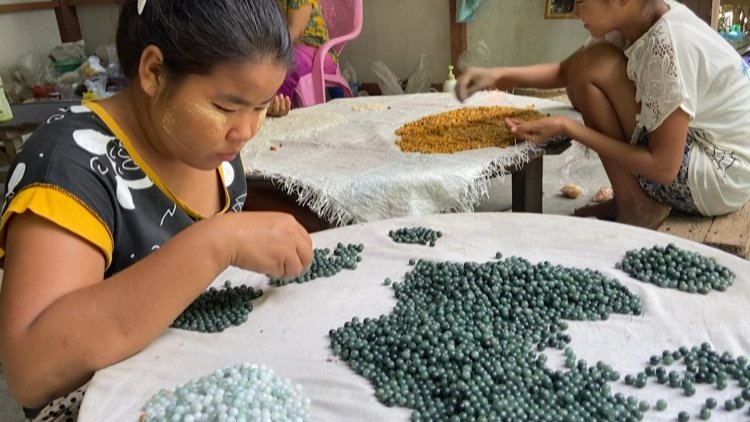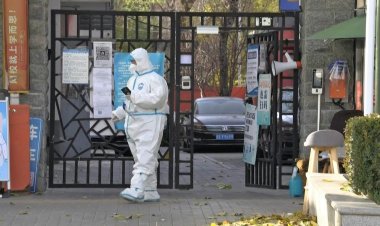Myanmar jade traders squeezed between junta and rebels

Myanmar jade traders are running from junta troops and dodging rebel attacks to sell dwindling volumes of the green gemstone, as the billion-dollar industry loses its shine months on from the coup.
The Southeast Asian country has been mired in chaos since the February putsch, with the military trying to crush widespread democracy protests and the economy in crisis.
Fighting around the Hpakant jade mine in northern Kachin state -- the largest in the world -- has squeezed digging already hampered by the pandemic, cutting supplies of one of the country's most lucrative exports.
Myanmar is the world's biggest source of jade, with the industry largely driven by insatiable demand for the translucent gem from neighbouring China.
Most stones pass through the second city of Mandalay, home to the 23-metre (75-feet) high Kyauksein Pagoda, a Buddhist shrine built using thousands of kilograms of the precious stone.
Now the complex is quiet, with just a handful of worshippers praying at its gleaming turquoise and red dome.
"Business is not good at all," said one jade trader, who spent months trying to sell his stones on Mandalay's roadsides as the pandemic and unrest closed its main jade market.
"Sometimes, people panic when soldiers come patrolling, and they run ... If one person runs, others start running. Then soldiers fire warning shots to control the situation."















